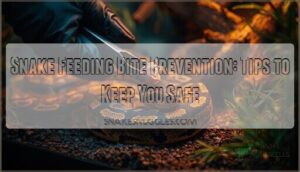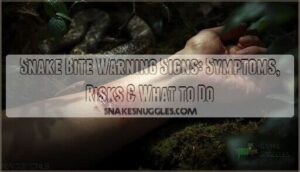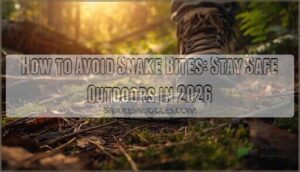Within this category, you will find a range of subcategories that address common health issues, preventative measures, and general guidelines for maintaining the optimal health of your snake.
Our expert articles cover various topics, including the identification and treatment of common snake ailments such as respiratory infections, mites, shedding problems, and digestive issues. We delve into the symptoms to watch out for, proper diagnosis methods, and recommended treatments to ensure your snake's speedy recovery.
- A cold snake is a stressed snake—and a stressed snake stops eating, gets sick, and makes for one very worried …
5 Common Mistakes With Snake Habitat Temperature to Avoid
A ball python can sit in a dangerously hot enclosure and show almost no signs of distress—right up until it …Ambient Vs Basking Temperature: Key Differences for Snakes
A snake that can’t warm up properly won’t digest its last meal—it’ll rot in its gut instead. That’s not dramatic; …How to Check Humidity and Temperature Accurately (2026)
A snake keeper once lost a beloved ball python to a respiratory infection—not from neglect, but from a hygrometer that …6 Best Reptile Thermometers for Kids: Safe & Easy Picks 2026
Getting a reptile’s temperature wrong isn’t just an inconvenience—it can make a bearded dragon stop eating or push a gecko …
This category addresses frequently asked questions related to snake care, behavior, health, and general information. Whether you're a beginner looking to learn more about snake ownership or an experienced snake owner seeking clarification on specific topics, the Snake FAQs category provides concise and informative answers to help you better understand and care for your snake pet. From inquiries about feeding habits and enclosure setup to shedding, handling, and identifying common health issues, this category covers a wide range of essential snake-related queries. Explore the Snake FAQs section to gain valuable insights and expert advice to ensure the well-being and happiness of your snake companion.
Snake Feeding Bite Prevention: Tips to Keep You Safe
Most snake bites happen not from aggression, but from a case of mistaken identity. Your hand smells like prey, moves …How to Calm a Nervous Snake Down: Handling & Care Guide
A snake that won’t stop musking, striking at the air, or pressing its nose raw against the glass isn’t being …Snake Bite Warning Signs: Symptoms, Risks & What to Do
Most people can’t identify a venomous snake bite until symptoms are already escalating. That window between the bite and the …How to Prevent Pet Snake Aggression: Causes, Signs & Tips
A snake that strikes without warning feels like a betrayal—but from the snake’s perspective, it followed a perfectly logical sequence …How to Avoid Snake Bites: Stay Safe Outdoors in 2026
Most snake bites are entirely preventable—and most happen to people who never saw the snake coming. In the United States, …










